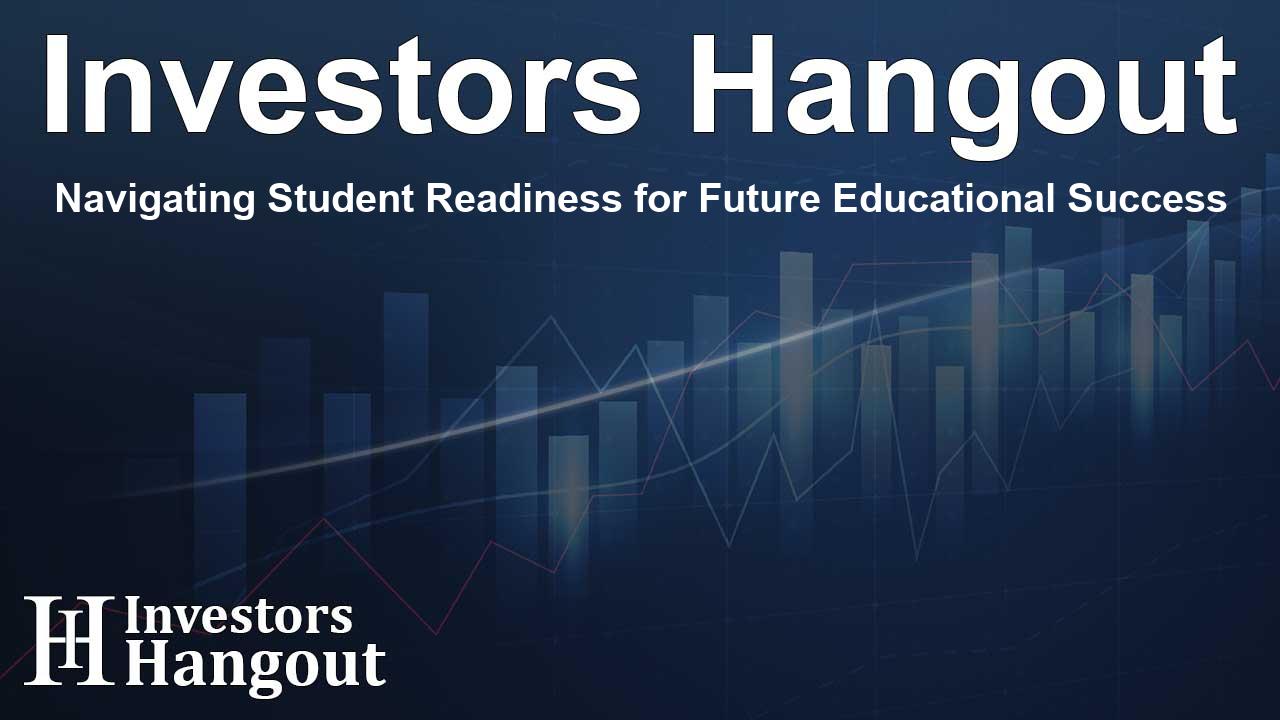Navigating Student Readiness for Future Educational Success

Insightful Findings on Student Readiness
Recent findings from Pearson (FTSE: PSON.L) indicate that a significant number of students are struggling to prepare for their next phase of education. A staggering 1.65 million students across primary and secondary education, alongside over 250,000 college students, may not be fully equipped emotionally or academically to transition smoothly. This raises serious concerns regarding the current educational framework.
Understanding the Survey
The 2025 Pearson School Report: Learning for Life surveyed near 11,000 educators, including primary and secondary school teachers and college tutors. The goal was to assess student readiness at various educational milestones, specifically targeting primary levels, Year 11, and the transition of 16–18-year-olds from college.
The Statistics Speak Volumes
According to the gathered data, the consensus among primary and secondary educators is that about one-third of students are not prepared for the next educational step—32% in primary and 31% in secondary. College tutors echoed these findings, stating that at least 43% of 16–18-year-olds are unprepared for further progression. The survey also pinpointed the predominant factors affecting this lack of readiness.
Factors Influencing Readiness
Teachers identified several key barriers impacting student readiness:
- Primary Education: Special Educational Needs and/or Disabilities (79%), writing challenges (75%), and independence issues (73%).
- Secondary Education: Factors included self-motivation (77%), independence (65%), and social maturity (62%).
- College Level: Digital well-being (30%), critical thinking (30%), and writing struggles (28%).
The Student Perspective
The report also considered feedback from 3,000 students at various educational stages, highlighting a divergence between their enjoyment of learning and concerns over readiness. Alarmingly, nearly 20% of school students and 26% of college students expressed worries about their preparedness for the upcoming academic challenges.
Suggestions for Improvement
Survey participants provided practical recommendations aimed at enhancing learning experiences. Key suggestions included:
- Connecting Learning to Real Life: A third of students expressed a desire for education to include relevant life skills, like financial management and communication skills.
- Focusing on Practical Skills: A significant portion of secondary students advocated for more emphasis on creative and digital skills within the curriculum.
- Adapting to Artificial Intelligence: A noticeable gap exists in how students are prepared for an increasingly AI-centric world, with many calling for integration of AI education into school systems.
- Clarifying Career Pathways: Teachers and students alike raised concerns regarding the alignment of education with future career opportunities.
- Prioritizing Student Outcomes: Values such as self-confidence, problem-solving, and critical thinking emerged as essential traits for student development beyond academics.
- Adjusting Curriculum Load: Students and educators highlighted the need for a potential reduction in curriculum volume and a reevaluation of final assessments.
Experts Weigh In
Commenting on these eye-opening findings, Freya Thomas Monk, Managing Director of Pearson Qualifications, noted that over 14,000 voices from students, educators, and home educators have spoken, emphasizing the urgent need to address barriers that limit young people’s educational success. She stressed the importance of adopting an engaging and relevant curriculum to allow for flexibility in assessment.
Jason Elsom, Chief Executive of Parentkind, addressed the long-term implications of the current educational approach. He highlighted that children entering school today will face workplaces transforming dramatically by 2050, necessitating lifelong learning to adapt and thrive.
Conclusion
As we reflect on the insights from the Pearson School Report 2025, it's clear that reforms in the educational system are necessary to ensure students are not only academically prepared but also equipped with essential life skills for the future. The collective voices of students and educators urge us to rethink and reshape learning experiences to align with the dynamics of an evolving world.
Frequently Asked Questions
What is the Pearson School Report?
The Pearson School Report is an annual publication that assesses the readiness of students at various educational levels for their next learning stages.
What were the main concerns identified by educators?
Key concerns included emotional readiness, academic performance, and social skills crucial for progressing to the next educational phase.
How many educators participated in the survey?
Nearly 11,000 educators, including teachers and tutors, participated in this year’s survey.
What changes do students want to see in their education?
Students seek more practical skills and relevance in their learning, as well as better preparation for AI advancements.
How can schools better prepare students for the future?
By adopting flexible curricula, focusing on relevant skills, and fostering self-confidence among students, schools can enhance educational readiness.
About The Author
Contact Olivia Taylor privately here. Or send an email with ATTN: Olivia Taylor as the subject to contact@investorshangout.com.
About Investors Hangout
Investors Hangout is a leading online stock forum for financial discussion and learning, offering a wide range of free tools and resources. It draws in traders of all levels, who exchange market knowledge, investigate trading tactics, and keep an eye on industry developments in real time. Featuring financial articles, stock message boards, quotes, charts, company profiles, and live news updates. Through cooperative learning and a wealth of informational resources, it helps users from novices creating their first portfolios to experts honing their techniques. Join Investors Hangout today: https://investorshangout.com/
The content of this article is based on factual, publicly available information and does not represent legal, financial, or investment advice. Investors Hangout does not offer financial advice, and the author is not a licensed financial advisor. Consult a qualified advisor before making any financial or investment decisions based on this article. This article should not be considered advice to purchase, sell, or hold any securities or other investments. If any of the material provided here is inaccurate, please contact us for corrections.
